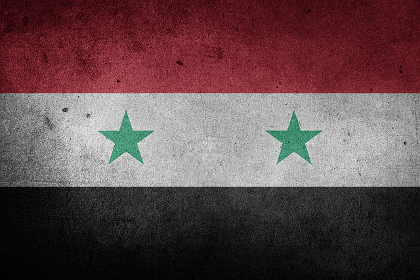
Can You Confront the Death Toll in Syria?
Syria remains an open sore. Inside Syria, the war continues. Death tolls have long become meaningless. Estimates range towards half a million dead, half the population displaced and life expectancy down by 15 years. News of this massacre and that has now faded from the imagination of people who do not live in the region. The fate of the Syrian people has now entered a register that includes that of the Iraqis and the Afghans.
July 27, 2016 | Source: AlterNet | by Vijay Prashad
We’re reaching Iraq levels of human tragedy.
Syria remains an open sore. Inside Syria, the war continues. Death tolls have long become meaningless. Estimates range towards half a million dead, half the population displaced and life expectancy down by 15 years. News of this massacre and that has now faded from the imagination of people who do not live in the region. The fate of the Syrian people has now entered a register that includes that of the Iraqis and the Afghans. Death is their lot, it seems. Eighty dead in a suicide attack in Kabul barely makes the headlines. It would take more to shake the Western audience: more dead, more gruesomely killed.
Where Syria becomes of interest is when the detritus of that war sweeps through the West: a butchering in Normandy, a truck battering through Nice, a machete attack in Reutlingen. This is when Syria comes to Europe, either through the frustrations of a deranged refugee or the fantasies of an alienated thug. There was a time when Western intelligence tried to encourage these thugs to go off to Syria and fight in the war against Assad. One of the reasons Belgium sent the highest per capita fighters to Syria in the early years of the war was because its intelligence services had no problem emptying out Molenbeek of its drug dealers and toughs. As the United States started to bomb Islamic State positions, these men hastened back home. If the Afghan Arabs had left their mountain positions in the 1990s to build Al-Qaeda and attack their homelands, these Syrian Europeans returned home to do their own kind of damage.
Wars are ugly. They destroy countries. No one comes off as angelic. The Syrian government advances toward Aleppo, bombing from the sky to open a path into the city. A car bomb goes off in Damascus, just after a mortar attack hit a restaurant in the district of Bab Touma. U.S. fighter planes hit civilians in Manjib, killing as many as 125 civilians. An Islamic State bombing in Qamishli kills 14 people as it battles Kurdish forces near the Turkish border. The map of the war is as complex as it was a year ago. The violence has not clarified anything. Gains are being made here and there for this side and that, but there is no significant path to an easy victory.
Sniffs toward the International Criminal Court with allegations of war crimes have now been silenced. That was the path for the regime change operation in Libya. The West tried to do that in Syria in the early years, calling for Bashar al-Assad to go, and using the threat of the ICC investigation to scare him into exile. But the Russian intervention last year stayed the hand of the advocates of regime change. It is no longer on the cards. Syria suffers from a death by a thousand cuts. No one wants to entertain an investigation into the brutalities of war—neither for the acts of the Syrian government nor for the U.S. bombings (such as at Manjib) or the Russian bombings. There is a complicity of silence here.
Meanwhile, hundreds of thousands of civilians live under siege, held hostage by the rebels and garrisoned by the government. Starvation is their horizon. Aleppo is the most vulnerable. The government has used its siege tactics as a method in the war. The Syrian military has warned the rebels of Aleppo that it will tighten the siege on 300,000 people as a method to force the rebels to depart from the city. Food will run out in August. Medical supplies shortly afterward. Sixty percent of hospitals in Syria are now closed or non-functional. Aleppo barely has any medical infrastructure. The cautious advance by the Syrian army into Aleppo could halt at any time. It has stopped before. This means that starvation will linger on, poisoning the possibility of any reconciliation. Winning a war cannot be the only goal. It is difficult to fight a war in order to win the peace.
The U.N.-brokered peace process will restart in August. In Geneva, the U.N. Special Envoy for Syria, Staffan de Mistura, said that progress was urgent. He hoped that the U.S. and the Russians would work out the parameters for the talks, making clear it was their agreement that would put pressure again on the Syrian factions to return to the table. Evidence for an intra-Syrian dialogue remains low. Trust is hard to reconstruct. De Mistura has said the same kinds of things since he took the office. He repeats his predecessors, Lakhdar Brahimi and Kofi Annan. Neither could move an agenda. But matters a little more hopeful now, with the entente between the Russians and the United States able to lessen the pressure for a total victory in the country.
